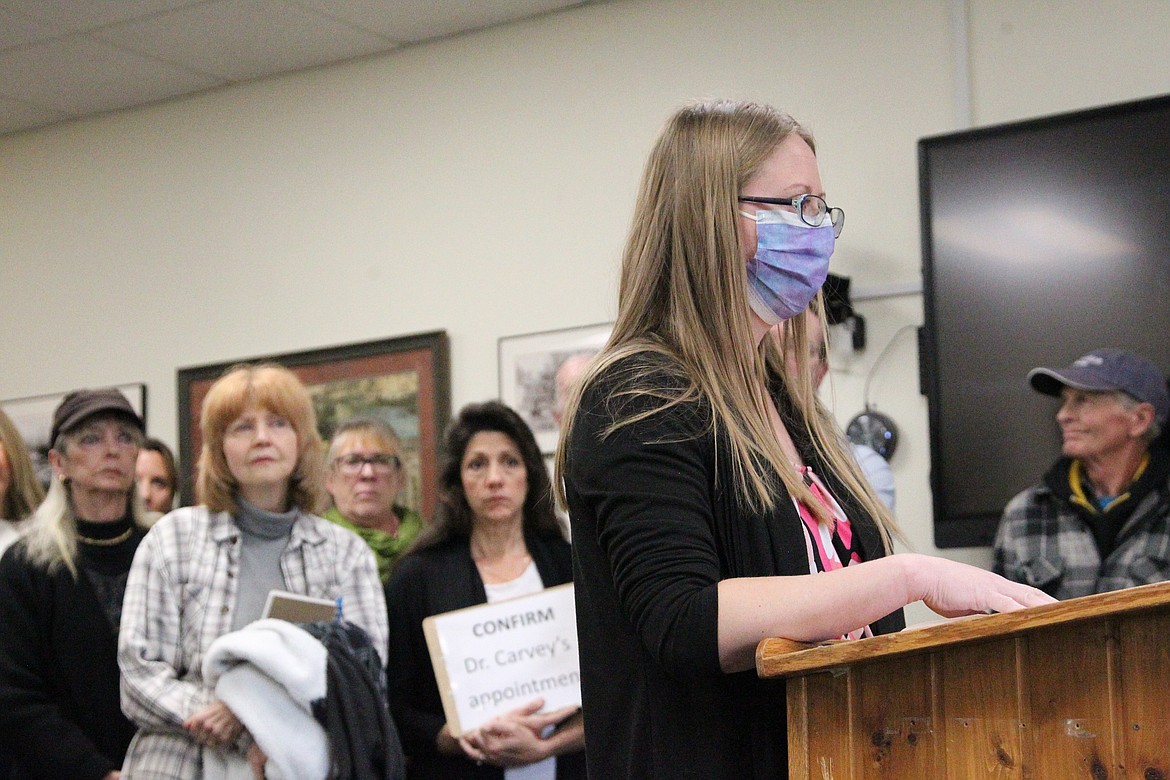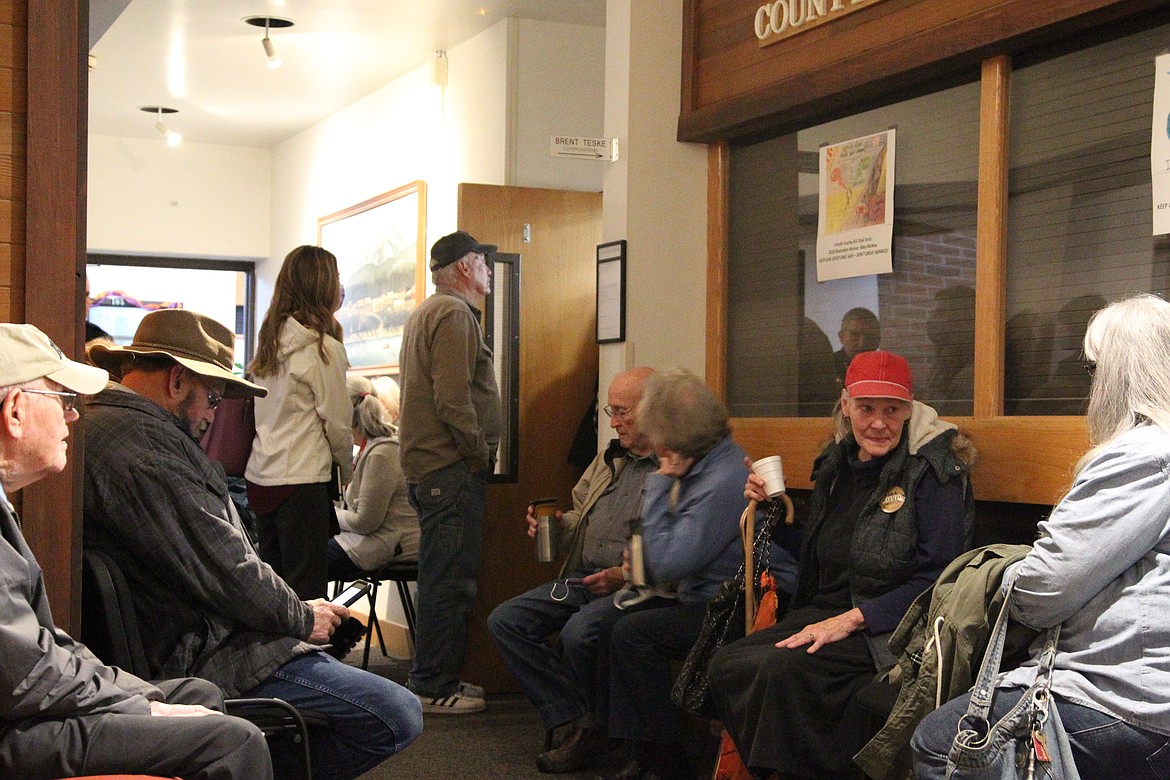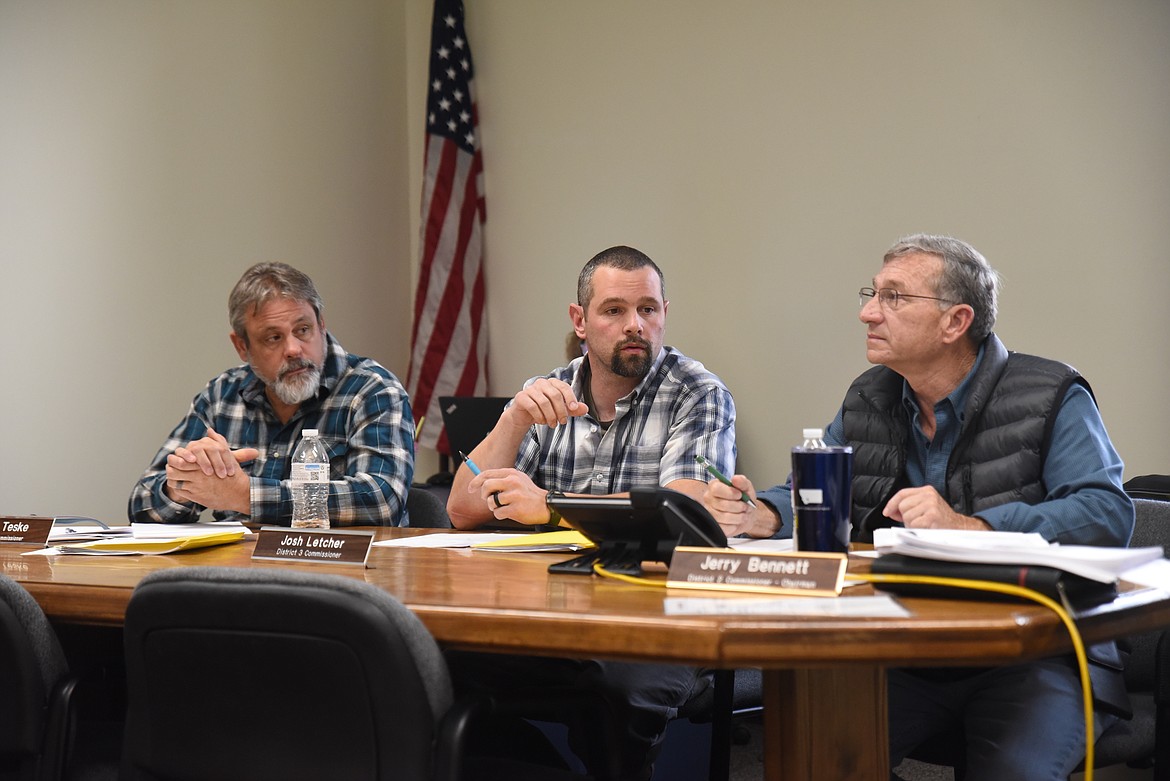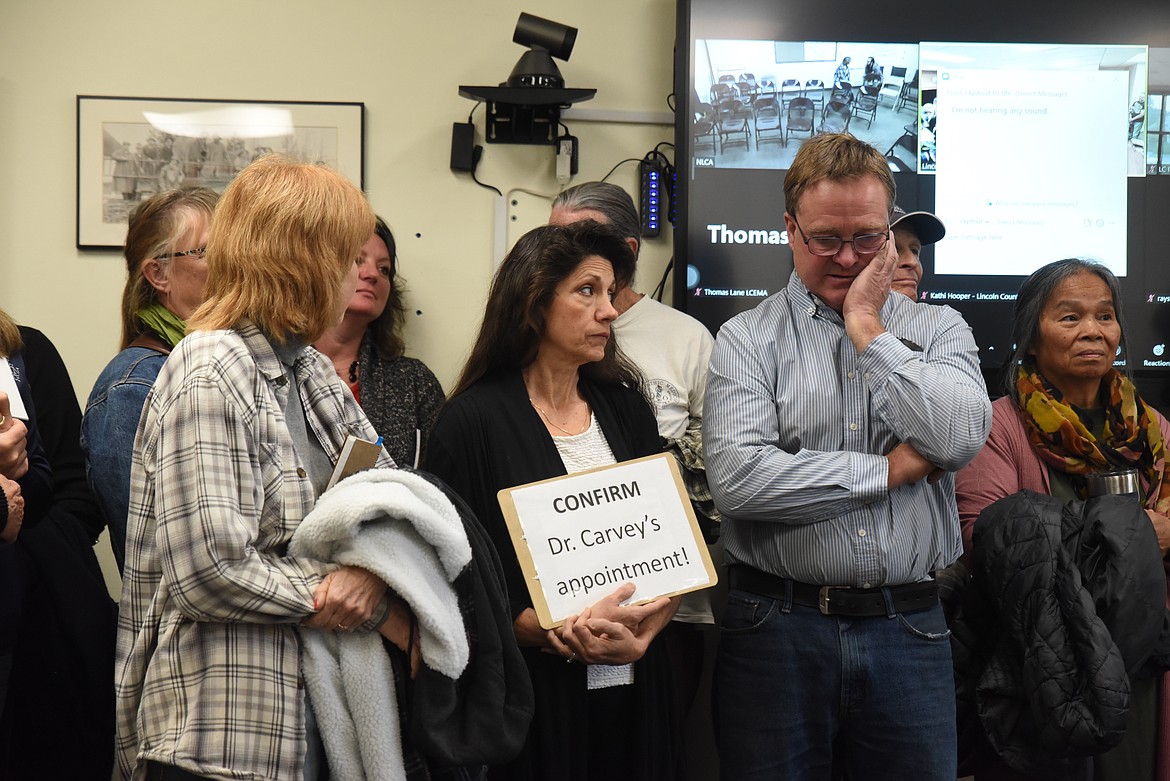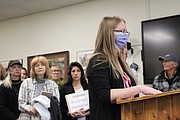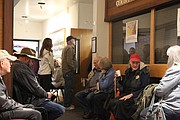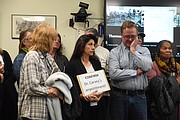Carvey reaffirmed as health board appointee
Commissioners upheld their decision to add Eureka’s Dr. Dianna Carvey to the health board after more than 30 minutes of public testimony in a packed meeting room inside the Lincoln County Courthouse this week.
Carvey’s unanimous appointment earlier this month was made without public comment, a move that quickly drew objections given the newfound importance of health board seats. Following the criticism, commissioners opted to hold a second vote on Oct. 27, this time allowing for public remarks.
Her ascension adds a fourth north Lincoln County voice to a board divided both over how best to confront the COVID-19 pandemic and along geographic lines. To date, the pandemic has claimed 56 residents, the bulk of those deaths coming after the delta variant swept across the country over the summer.
Residents who flocked to the commissioners’ meeting room inside the courthouse were equally divided. For every speaker who lent support to Carvey, another spoke in favor of her counterpart, Libby’s Dr. Gregory Rice. Commissioners reported receiving about 250 letters of support for the candidates beforehand. Enough people milled in and around the small meeting room, which most weeks is largely devoid of onlookers, that Lincoln County Sheriff Darren Short had to call for quiet — the crowd’s noise was disrupting an ongoing district court trial upstairs.
Faced with an estimated 200 attendees, County Commissioner Jerry Bennett (D-2), board chair, allowed for one representative of either camp to speak for up to three minutes in favor of their preferred health board member. All other residents were limited to a one-sentence pitch.
Paula Darko-Hensler, a former Democratic member of the state Legislature and a past Libby School Board member, represented supporters of Rice, who she called the “most qualified” candidate and someone who understood the needs of his south county neighbors.
“Rice knows the health care concerns of the south end of the county,” she said, before highlighting his professional accomplishments, to include a teaching post with the University of Washington and membership in the American Academy of Physicians.
“He’s highly qualified as far as medical experience and how to handle people and he talks to people — he’s involved in the community,” Darko-Hensler said.
She also argued for equal representation, saying that with a larger share of the population, south Lincoln County should hold more seats on the health board. With fewer representatives, it will be harder for Libby and Troy area residents to have their voices heard, despite outnumbering their north county neighbors, she said.
The representative for Carvey’s supporters, Jesse Hunt, said she had a better track record on COVID-19 than Rice by comparing the death rates at nursing homes in Eureka and Libby, and described her as a compassionate doctor with many patients in the Libby area. He noted that Carvey had used the controversial anti-parasitic ivermectin, which he described as being unfairly maligned by its critics.
Carvey is listed as a worldwide associate of the Front Line COVID-19 Critical Care Alliance, an organization described by Scientific American as a “fringe doctor’s” group, which lists ivermectin as a core component of its protocols. GoFundMe recently banned the organization from raising money on its website, according to Forbes.
While research into ivermectin’s effect on COVID-19 remains ongoing, a large and oft-touted study showing its successful use has been withdrawn amid claims of data fabrication. The FDA and Centers for Disease Control and Prevention continue to warn against using ivermectin to treat the disease, instead recommending those worried about COVID-19 get vaccinated against it.
Hunt also highlighted Carvey’s position on abortion.
“She is a quality individual,” Hunt said. “She is pro-life. That says a lot to me.”
A steady stream of residents took to the podium, imported from Libby City Hall for the occasion, following Darko-Hensler’s and Hunt’s remarks. Although limited to a single sentence, speakers made the best of it.
“The CDC guidelines are causing a lot of deaths and I say that we support Dr. Carvey,” said Libby resident Katrina Newton, who has spoken publicly against pandemic restrictions in the past.
“I support Dr. Greg Rice and I ask the commissioners for equal representation for the health board,” said Libby resident Jennifer Nelson.
“Please do not let the progressives steal this vote,” implored Catherine Kahle of Trego, who led several efforts in 2020 and 2021 to have the health board disbanded or those members supporting vaccinations removed.
“Dr. Rice,” said former health board member Laura Crismore simply.
“I vote for Dr. Carvey and she has an impeccable survival rate on COVID-19,” said Ed Kahle, who, like his wife, previously lobbied commissioners to do away with the health board on the grounds that the pandemic was a hoax.
“I’m just here to support Dr. Rice,” said Libby resident Gary Huntsberger.
In the end, the three county commissioners stuck to their original positions. The only difference was Josh Letcher (D-3) making the motion to reaffirm Carvey’s appointment. County Commissioner Brent Teske (D-1), who put Carvey’s name forward on Oct. 13, offered a second. The vote was unanimous.
Prior to the vote, the commissioners thanked residents for attending.
“I’m just glad to see the community support and see it show up from all sides of the county,” Letcher said, who noted the dearth of attendees when the trio passed the county’s multimillion-dollar budget a few weeks prior. “It’s a good mix of everybody, a good representation of who our county is and I appreciate everybody coming in.”
Echoing Letcher, Bennett encouraged all those in attendance to continue participating in local government.
“I really hope that … we’re not a one-and-done,” Bennett said. “We have a Ripley sale project going on that affects thousands of people and we need public comment on that. We have a selenium issue, we need public comment on that… This is a great representation of the community, no matter what side of the fence you’re on. It’s a great process.”
Commissioners said afterwards that location — the position was advertised with a south Lincoln County preference — played no role in their decision. Geographic considerations kicked off a major reshuffling of the board since the pandemic began, with a once Libby-centric membership yielding to a Eureka-area majority over the past year.
That membership changeup came at the behest of residents, many hailing from north Lincoln County, upset with pandemic restrictions and, later, vaccination efforts. Eureka was given an at-large seat, one appointed by commissioners, and Letcher joined the board as his colleagues’ representative. Patricia Kincheloe, who currently holds north Lincoln County’s designated at-large seat — the only geographically designated at-large seat — will not be asked to reapply despite the commissioners’ decision to abandon location as a basis for appointment.
Teske, who joined the board of commissioners in July, said he felt unbound by geographical preferences as it’s not policy. Letcher pointed to the lack of health board bylaws enshrining the practice of alloting appointments by geography. Pressed on the change between the approach taken with the seat held by Kincheloe and that going to Carvey, Letcher argued that the advertised preference still left the decision up to the commissioners.
And Letcher said he could not in good conscious vote to appoint a pro-choice doctor to the health board.
“I know they’re trying to make it a north versus south county decision, but even if Dr. Rice was from Eureka, I wouldn’t have voted for him,” Letcher said. “I don’t feel his ideology and [abortion] views fit anything that I could support or even consider to be on the health board.”
Letcher saw a contradiction in campaigning for efforts to protect people from the virus while supporting abortion.
“I understand they want to save the elderly and they’re patting themselves on the back on that, but life starts at conception,” he said.
Teske said he disagreed with Rice’s support of pandemic measures, including restrictions. Rice, he said, had staked out his position, and that included mandates.
“I believe in personal choice, and the forced mandates — I can’t condone and agree with that,” Teske said. “I’m all for civil liberties, I’m all for personal liberties. It didn’t make sense for me to put somebody in that position who was reluctant or wholly against that point of view.”
As for the division over how to address the pandemic, Teske said the science involved was very much still up for debate.
“There’s science out there to debate both sides of every topic,” he said.
Teske said he saw in Carvey a candidate free from politics, which is what he wanted in a board appointment. He rejected the notion that politics influenced his decision-making, saying that his stance on science on civil liberties constituted beliefs rather than politics.
Bennett, too, saw little political ideology in Carvey’s correspondence with the commissioners. Rice, by contrast, has laid out where he stands, Bennett said.
“For me it boils down to … the fact that Dr. Rice has stated his position in the past at meetings here and at other places,” he said. “I’ve spoken to Dr. Carvey, I’ve read some of her notes and letters that she sent out and she was not political in those publications.”
As for the north-south divide, Bennett said that were the health board to require that at-large seats be designated by geography, the commissioners would honor it.


